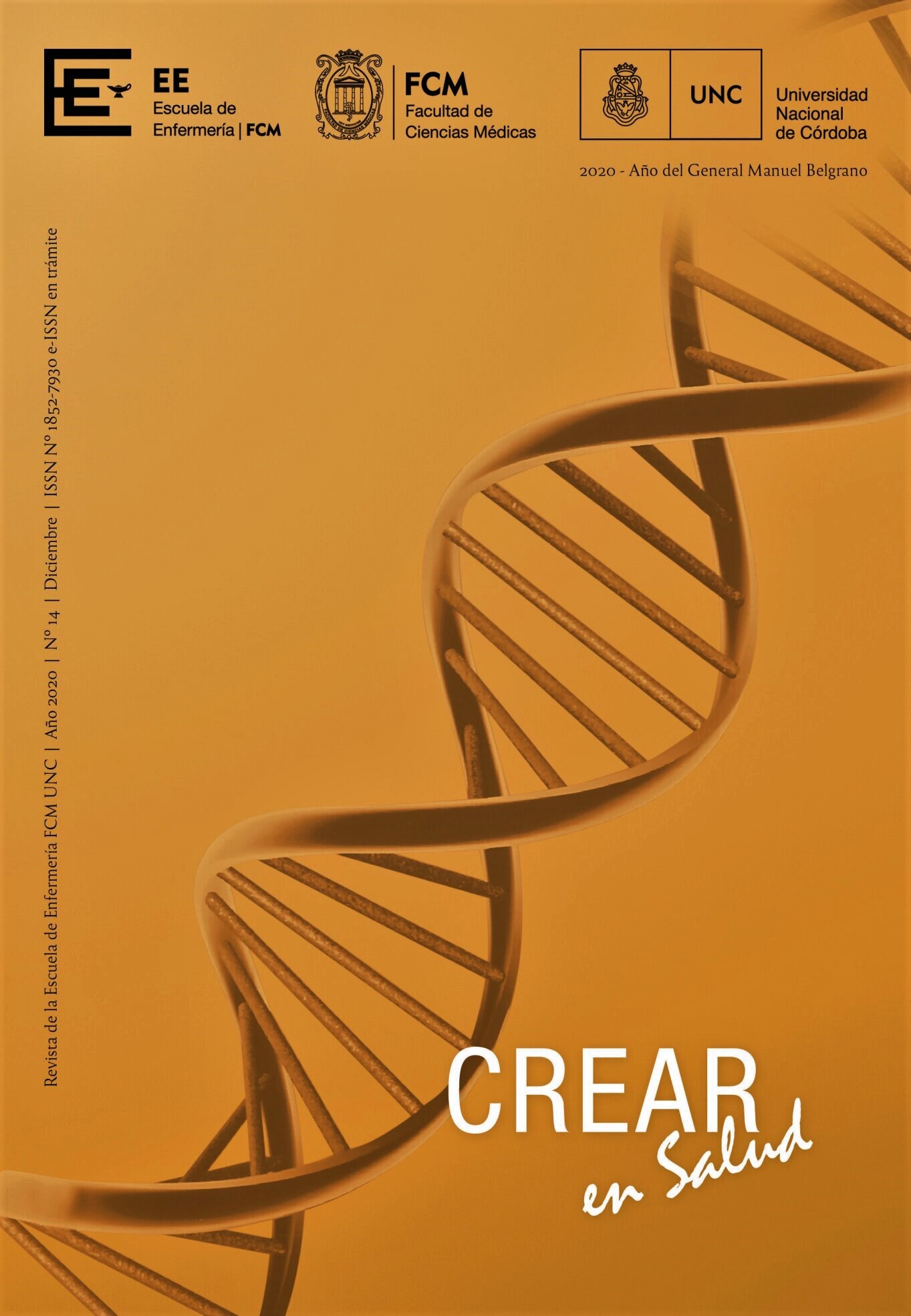Percepciones de los docentes del aislamiento social, preventivo y obligatorio en el proceso educativo .Córdoba
Keywords:
teachers, pandemic, isolation, crisis, uncertainty.Abstract
Introduction in the current year 2020, humanity was faced with a particular situation of Pandemic due to the Covid19 coronavirus. The total interruption of face-to-face classes, at all levels,
and the shift to virtual as a teaching mode, placed teachers and students in the world of virtuality, building new mechanisms to ensure the continuation of the learning process. The objective
was to determine what are the teachers’ perceptions of social, preventive and compulsory isolation in the educational process. Cordoba. Method exploratory, descriptive and cross-sectional
study. Primary source. A survey was used that was designed with the tool of a Google Form.
Sample (n = 85), for statistical analysis Google Forms and Google Analytics Reports. Results
85 teacher surveys were received. Of which 12.5% work at the initial level, 11.8% at the primary level, 42.4% at the secondary level, 15.3% at the tertiary level, and another 17.6%. Of
the total of those surveyed, 35.3% affirm that they felt accompanied by the different measures
taken by their superiors, 51.8% say they felt partially accompanied. In relation to flexibility,
4.7% affirm they had to do it in the evaluation method, 5.9% the proposed objectives, 11.8%
the assignment of tasks, and 76.5% throughout the process. Regarding the adaptation of the
students, they fell between point 2 and 4, with point 3 being of greater relevance with 63.5%.
Point 2 received 23.5% and 4 12.9%. Conclusions teachers expressed being able to adapt to
the new system and felt accompanied by their colleagues and partially accompanied by their
superiors. They were flexible to the adjustments of the educational task and according to their
perception the students partially adapted
Downloads
References
Arancibia Martini, H.; Castillo Armijo, P. y Saldaña Fernández, J. (2018). Innovación Educativa: perspectivas y desafíos. Ed. Instituto de Historia y Ciencias Sociales, Facultad de Humanidades, Universidad de Valparaíso; Prat 677, Valparaíso ~ Chile. Recuperado de: https://historia.uv.cl/attachments/article/95/ARANCIBIA,%20CASTILLO%20y%20SALDA%C3%91A_Innovacion%20educativa_2018.pdf
Campos, R. (2020). Incertidumbre y complejidad: reflexiones acerca de los retos y dilemas de la pedagogía contemporánea. Revista Electrónica “Actualidades Investigativas en Educación “Universidad de Costa Rica. Recuperado
CEPAL (Comisión Económica para América Latina y el Caribe). (2019). Panorama social de América Latina. (LC/PUB.2019/22-P/Rev.1), Santiago.
Recuperado de: https://www.cepal.org/es/publicaciones/44969-panoramasocial-america-latina-2019
CEPAL (Comisión Económica para América Latina y el Caribe) (2020). Naciones Unidas. Informe Especial, 2020. Recuperado de: https://www.cepal.org/
es/temas/covid-19
Fabro, A. (2018). Desafíos actuales de la educación: navegando entre la incertidumbre y las certezas. Revista Aula Universitaria, (19). Recuperado de:
https://doi.org/10.14409/au.v0i19.6870
Franke, M. y Olvera, A. (2018). Principios básicos de la pedagogía sistémica.
Universidad Internacional de Valencia. Recuperado de: https://www.universidadviu.com/principios-basicos-de-la-pedagogia-sistemica/
Expósito, E., & Marsollier, R. (2020). Virtualidad y educación en tiempos de
COVID-19. Un estudio empírico en Argentina. Educación y humanismo,
(39), 1-22. https://doi.org/10.17081/eduhum.22.39.4214
Ministerio de Salud. (2020). Boletín Oficial de la República Argentina, marzo 2020.
Aislamiento Social Preventivo y Obligatorio- Decreto N° 297/ 2020. Recuperado de: https://www.argentina.gob.ar/coronavirus/aislamiento
Melo, S. (2020). Ventajas y desventajas del uso de formularios de google. Recuperado de: https://mydatascope.com/blog/es/ventajas-y-desventajas-deluso-de-formularios-de-google/
Morin, E. (1990). Introducción al pensamiento complejo. España. Ed: Gedisa.
Morin, E., Ciurana, R., Motta, R. (2002). Educar en la era planetaria. El pensamiento complejo como Método de aprendizaje en el error y la incertidumbre humana. UNESCO. Universidad de Valladolid.
Muelas, L. R. (2019). La incertidumbre esa asesina silenciosa. Recuperado de:
https://lamenteesmaravillosa.com/la-incertidumbre-esa-asesina-silenciosa/
Sabino, C. (1996). Proyecto de Investigación. Ed: Lumen/Humanitas. Caracas.
Sepúlveda, P. (2020). Educación en línea en cuarentena ¿Cómo ser más que
un docente que lee diapositivas y entusiasmar a los alumnos? La Tercera.
Stolkiner, A. (2020). Tener incertidumbre hoy es un acto de normalidad. Recuperado de: https://www.telam.com.ar/notas/202007/487119-stolkinersalud-mental-cuarentena.html
OMS. (2020). Brote de enfermedad por coronavirus (COVID-19) Acceso/
Emergencias sanitarias/Enfermedades/Nuevocoronavirus2019. Recuperado de: https://www.who.int/es/emergencies/diseases/novel-coronavirus2019?gclid=Cj0KCQiAqo3-BRDoARIsAE5vnaLQNYWwNrYOJoLIPzo3vlw46S8b9WK_kLevK1tpRUjOgPQHSjD-lioaAmSdEALw_wcB
OMS. (2019). Qué es Pandemia. Alerta y respuestas mundiales –GAR- Recuperado de: https://www.who.int/csr/disease/swineflu/frequently_asked_
questions/pandemic/es/
ONU. (2020). ONU advierte que cierre de escuelas puede generar una “catástrofe generacional”. Recuperado de: https://www.dw.com/es/onuadvierte-que-cierre-de-escuelas-puede-generar-una-cat%C3%A1strofegeneracional/a-54432558
ESCUELA DE ENFERMERÍA 19
Picón, G. A., González de Caballero, G. K. y Paredes Sánchez, J. N. (2020).
Desempeño y formación docente en competencias digitales en clases no presenciales durante la pandemia COVID-19. Recuperado de: file:///C:/Users/
carlos/Downloads/778-Preprint%20Text-1115-1-10-20200616%20(1).pdf
Roldán, P.; Dussel, I.; y Fontana, A. (2020). Ministerio de Educación de la Provincia de Córdoba. (2020). Enseñar y estudiar en medios digitales. Recuperado de: https://tuescuelaencasa.isep-cba.edu.ar/institucional/entre-colegasdocentes/nota-ense%C3%B1ar-y-estudiar
UNESCO y Oficina Regional de Educación para América Latina y el Caribe.
Comisión Económica para América Latina y el Caribe. (2020). Educación
en tiempos de la pandemia COVID-19. Santiago de Chile. Recuperado de:
https://unesdoc.unesco.org/ark:/48223/pf0000374075?locale=es
Downloads
Published
How to Cite
Issue
Section
License

This work is licensed under a Creative Commons Attribution-NonCommercial 4.0 International License.



